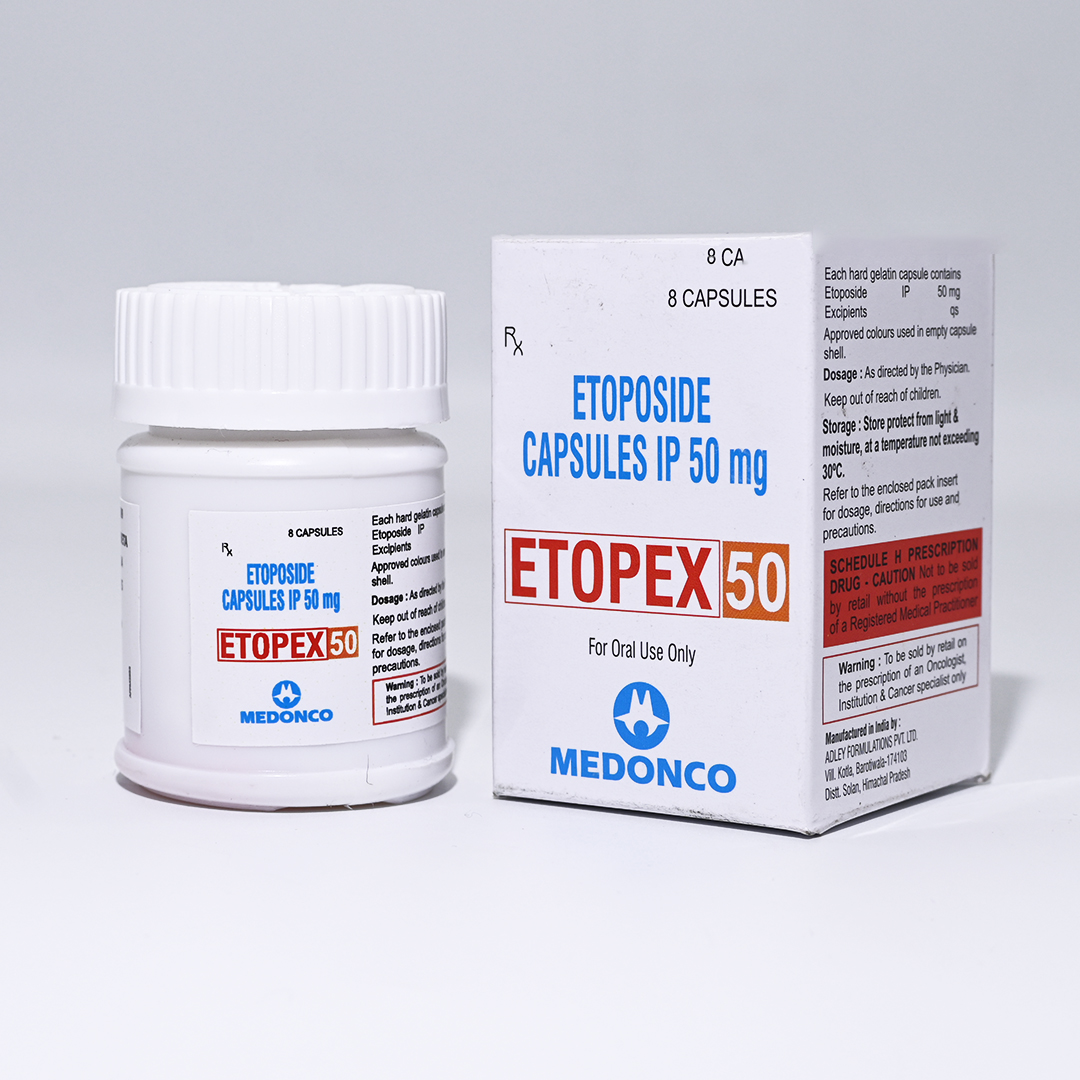
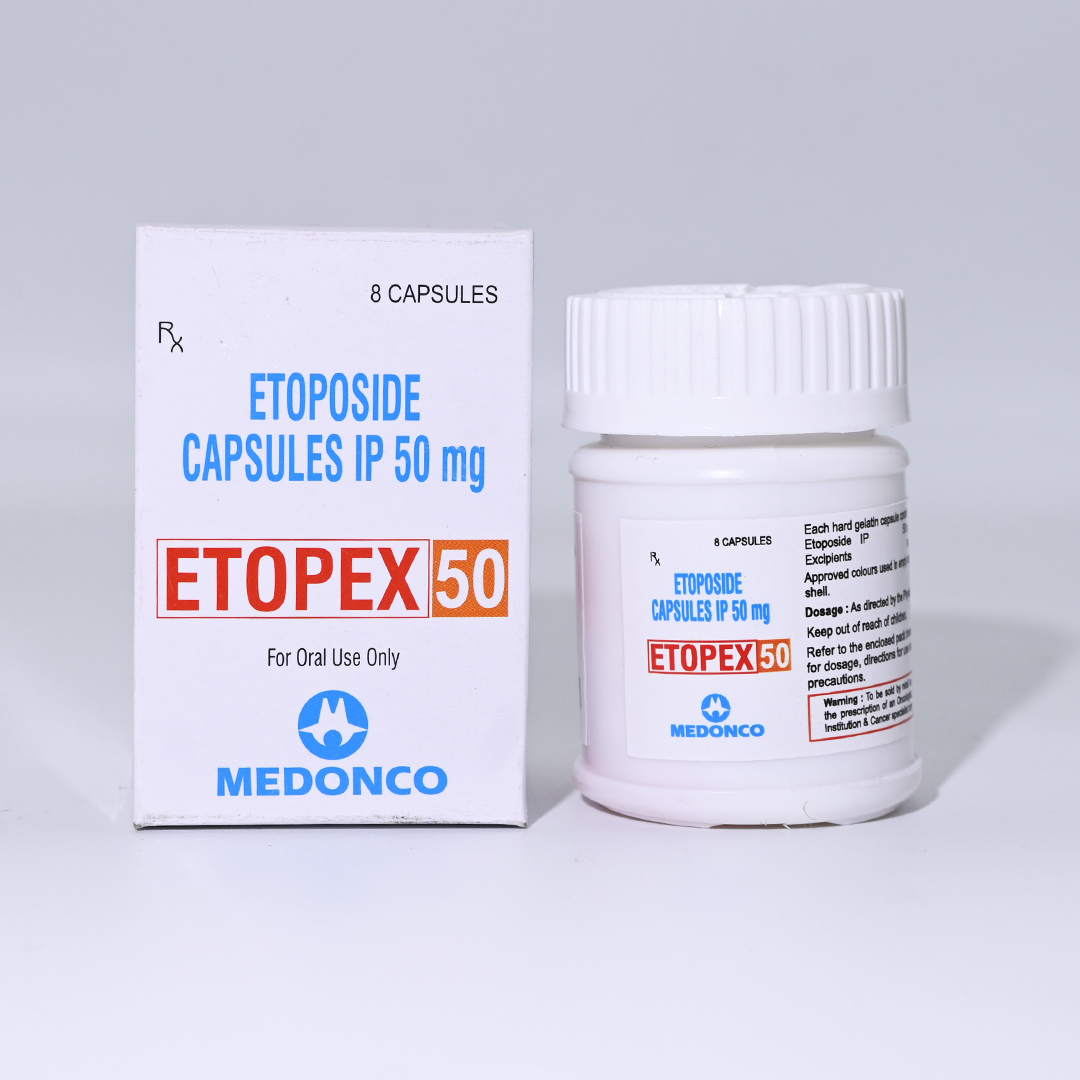
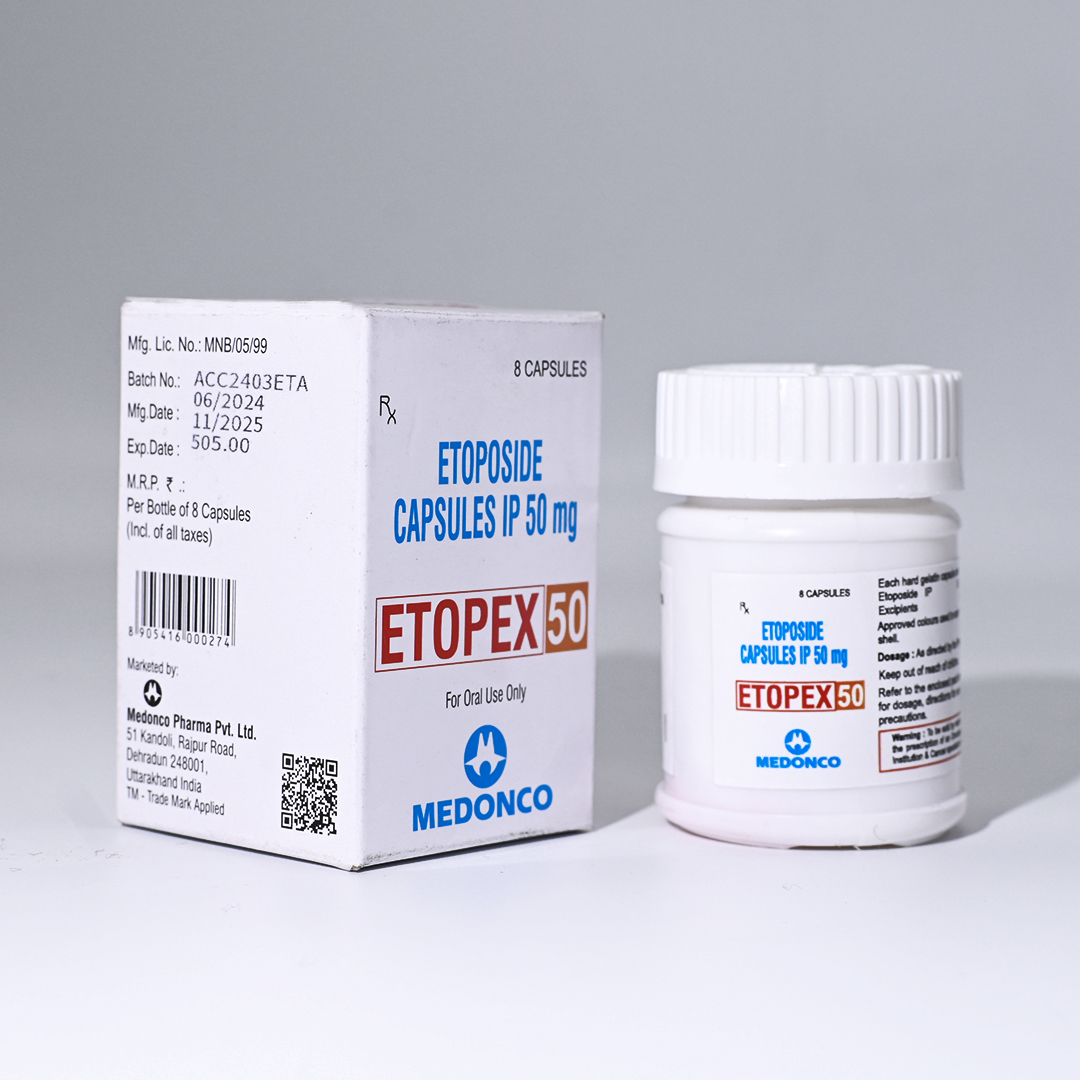
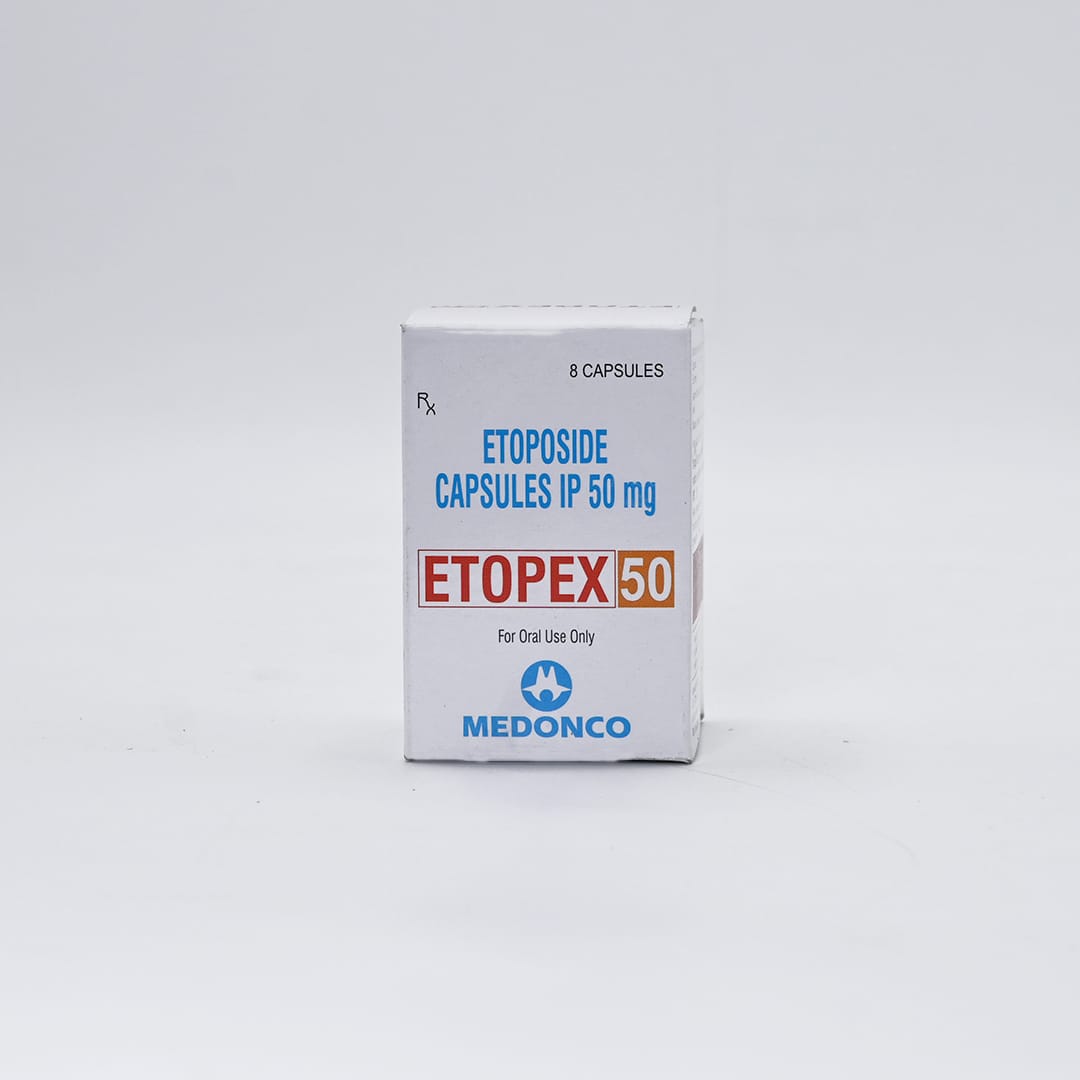
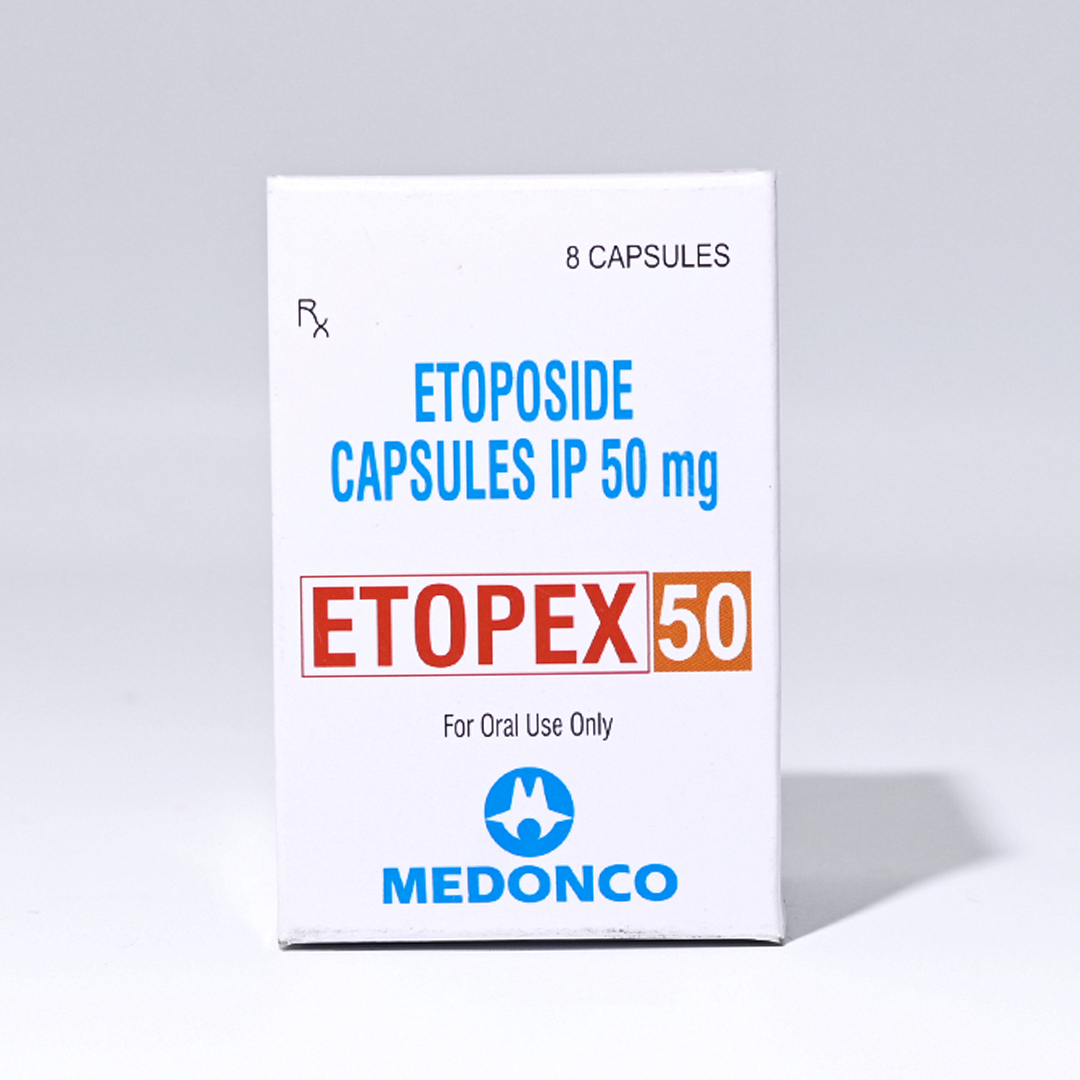
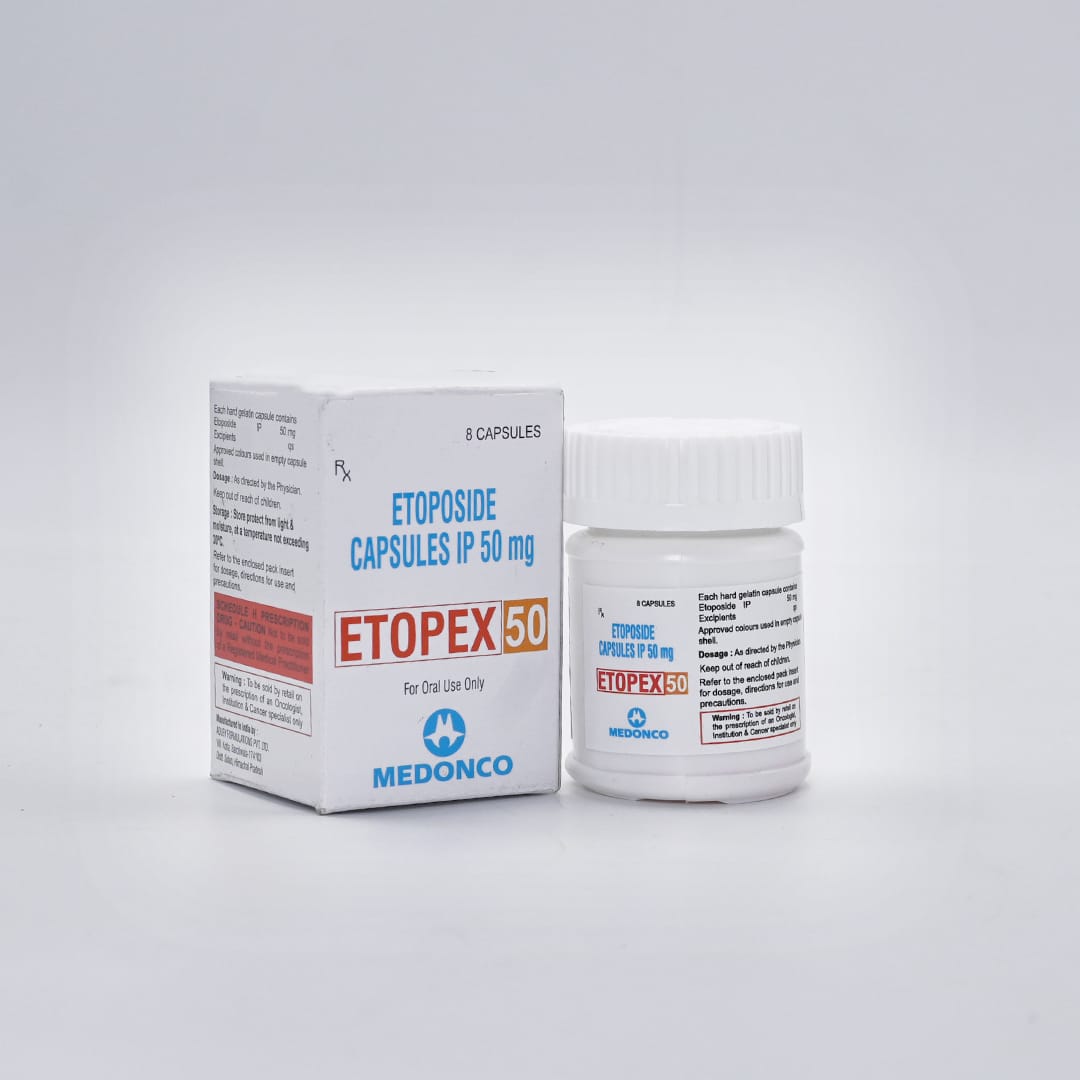
ETOPEX 50MG
Etoposide 50mg Capsule
Net Qty- 8 Capsules
Shelf-Life- 2 Years
Etoposide 50mg is a chemotherapeutic drug widely used in the treatment of various cancers. It is a semisynthetic derivative of podophyllotoxin, and it belongs to the class of topoisomerase inhibitors, specifically targeting topoisomerase II.
USE
Etoposide is used to treat several cancers, either as monotherapy or in combination regimens. Common indications include:
Small Cell Lung Cancer (SCLC):
- Often part of first-line chemotherapy regimens (e.g., with cisplatin or carboplatin).
Testicular Cancer:
- Typically combined with other agents like cisplatin and bleomycin for metastatic disease.
Hodgkin’s and Non-Hodgkin’s Lymphomas:
- In relapsed or refractory cases.
Acute Myeloid Leukemia (AML):
- As part of salvage chemotherapy regimens.
Ovarian Cancer, Kaposi Sarcoma, and Neuroblastoma:
- In specific clinical scenarios.
Mechanism
of Action
Etoposide interferes with topoisomerase II, an enzyme critical for DNA unwinding and replication. By stabilizing the enzyme-DNA complex during the re-ligation step:
- It causes DNA strand breaks, preventing replication and transcription.
- This leads to cell cycle arrest, predominantly in the S and G2 phases, and ultimately results in apoptosis.
Dosage and Administration
Oral Etoposide (50mg Capsules):
- The dosage depends on the specific cancer, patient’s condition, and treatment regimen.
- Standard Dose (SCLC):
- 50-100 mg/m²/day for 5 days, repeated every 3 weeks.
Intravenous Etoposide:
- Administered over 30-60 minutes to reduce the risk of hypotension.
- Common dose: 100-120 mg/m²/day for 3-5 days.
Key Considerations for Oral Form:
- Swallow capsules whole; do not crush or chew.
- Take on an empty stomach, as food can reduce absorption.
Common Side Effects
Etoposide can cause a range of side effects, which vary depending on dose, duration, and individual patient factors.
Hematologic:
- Myelosuppression:
- Leukopenia, thrombocytopenia, and anemia are dose-limiting toxicities.
- Infection Risk:
- Due to neutropenia.
Gastrointestinal:
- Nausea and Vomiting:
- Often mild to moderate; manageable with antiemetics.
- Diarrhea or Constipation.
Others:
- Alopecia (temporary hair loss).
- Fatigue and weakness.
- Mucositis (mouth sores).
Severe or Rare Side Effects
- Hypotension:
- Especially with rapid IV administration.
- Secondary Malignancies:
- Long-term use may increase the risk of leukemia.
- Hypersensitivity Reactions:
- Rare but may require discontinuation.
- Hepatotoxicity:
- Monitor liver function during therapy.
Monitoring and Precautions
Monitoring Parameters:
- Complete Blood Counts (CBC):
- Before and during each cycle to manage myelosuppression.
- Liver and Kidney Function Tests:
- Etoposide is metabolized in the liver and excreted by the kidneys; dose adjustments may be required for dysfunction.
- Signs of Infection or Bleeding:
- Common due to neutropenia and thrombocytopenia.
Precautions:
- Pregnancy and Breastfeeding:
- Contraindicated due to teratogenic effects.
- Contraception:
- Both males and females should use effective contraception during treatment and for several months after.
- Drug Interactions:
- CYP3A4 inhibitors/inducers (e.g., ketoconazole, rifampin) can alter etoposide levels.
Clinical Considerations
- Etoposide is often used in combination therapies (e.g., with platinum-based drugs) for synergistic effects.
- Oral bioavailability is variable (25-75%), requiring careful dosing.
Alternatives
For patients who cannot tolerate etoposide, alternatives may include:
- Topotecan: Another topoisomerase inhibitor, particularly for small cell lung cancer.
- Irinotecan: Effective in lung and colorectal cancers.
- Vincristine or Vinblastine: Microtubule inhibitors for hematologic malignancies.